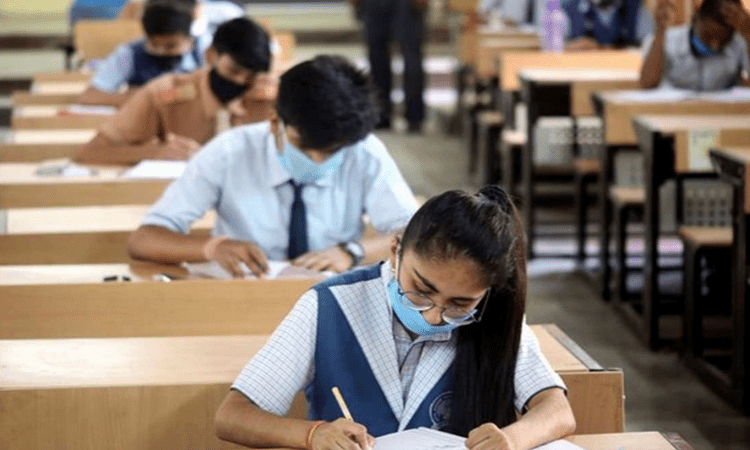Schools in Kerala reopened on Monday after remaining closed for 20 months due to the Covid pandemic.
Since attending offline classes is not compulsory, only a million of the 4.2 million students returned to the classrooms.
Schools have been directed to strictly follow the bio-bubble model besides other Covid protocols.
The state level inauguration of a ‘back to school’ programme was inaugurated by Kerala Education Minister V.Sivankutty at the Cotton School Girl’s School in the capital city.
Similar inaugurations were seen in the other 13 districts of the state a well, while some schools held their own functions to welcome students.
Sivankutty said since the Covid threat is not fully over, all mandatory protocols have to be strictly complied with.
“For around two weeks, it will be a readjustment to the school and classrooms. We will be observing how things are and have regular meetings to discuss and debate on how situation can be improved, even while caution is maintained. For the time being everything will be under a close watch.”
Across the state one common thing was school students were definitely happy to be back.
“We had started to get bored of the online mode of study so are happy to be back- though our smiles hidden behind the masks. Now we wait for the classrooms to be full, as at the moment, it’s only half or less than that,” said a group of students in the capital city.
In a rare sight, state Agriculture Minister P. Prasad came to drop her daughter at a state-run school in the state capital.
“I’m here as a parent of my daughter Aruna of grade 5. We all are happy that children are back as children. The government has ensured that things are in place as the schools reopen after the long break,” said Prasad.
A teacher in Pathanamthitta district said she could not wait to get back to the classroom and be with her students.
“It’s probably the first time we are having a celebration like this, as Monday also marks Kerala’s 65th birthday. All of us are really excited and happy to be back,” she said.
Popular comedian and character actor Jagdeesh said that his grand-daughter is attending her class in the state capital.
“We have come to know that of the 25 students in her class, only nine parents have given their consent for physical classes.”
For the time being, in many schools students of each class have been divided into different bio-bubble groups and each group will have to come to school either twice or thrice in a week.
Even though its mandatory for all teachers and non-teaching staff to be vaccinated, according to the latest figures, as many as 2,282 teachers in the state are yet to get vaccinated.
In a Kozhikode district school, a robot welcomed every student with sanitiser and a balloon.
However, while most of the schools have reopened, 25 schools in Kuttanad area in Alappuzha district could not, owing to heavy rain.
“We were all ready to return, but then our teacher called up asking us to wait as all the classes are submerged. We are sad,” said a student who is impatient to return to school.
Meanwhile, the tailoring shops witnessed a heavy rush with students continously walking in either to get new uniforms stitched or get the old ones altered.











